OneAgent SDK for C/C++
You must have access to the program’s source code you wish to monitor to utilize the OneAgent SDK. The SDK allows you to instrument your application manually. The OneAgent SDK now supports remote call tracing and SQL database request tracing for C/C++ and will expand these features in the following months.
Check out our GitHub repository for an excellent place to start. The essential SDK documentation, including the hosted API documentation, can be found here.
Once you’ve compiled your application against the OneAgent SDK for C/C++, you can deploy it as usual. Your application will not be harmed by instrumentation.

Automatic detection and deep monitoring of native applications
Deploy your native application on any monitoring system. If your program was operating at the OneAgent installation, you need to restart it. OneAgent identifies that your application has been instrumented with the SDK and begins monitoring it on a request-by-request basis, much like it does with Java and Node.js.
While you must access the source code of your native application to receive the whole OneAgent experience on a monitored machine, once OneAgent is installed, you only need to restart the application to begin scanning.
Examples of programs
The samples that come with the SDK include the following native programs.
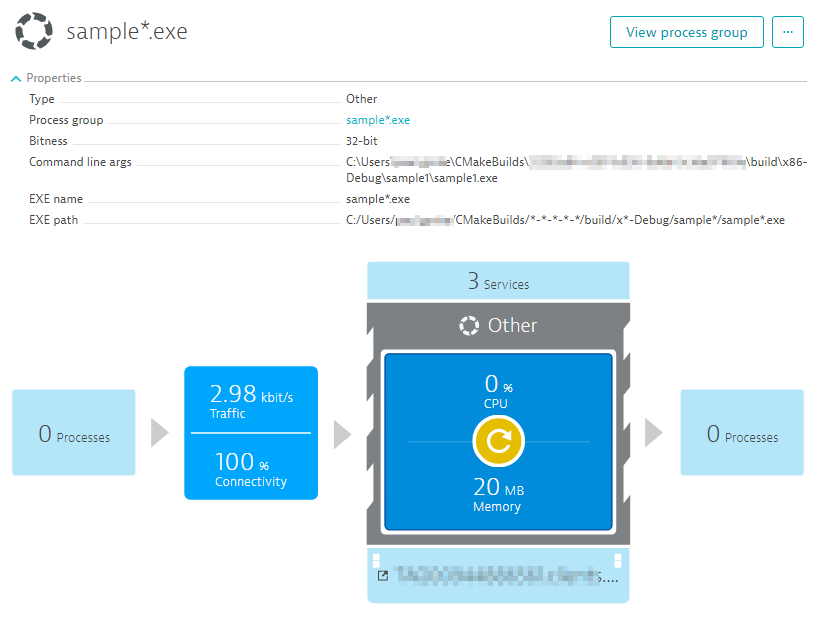
This simple example software receives a remote call, connects to another component, and connects to a database. When service on a monitored host starts, it will appear on the Transactions & services page (see example below).
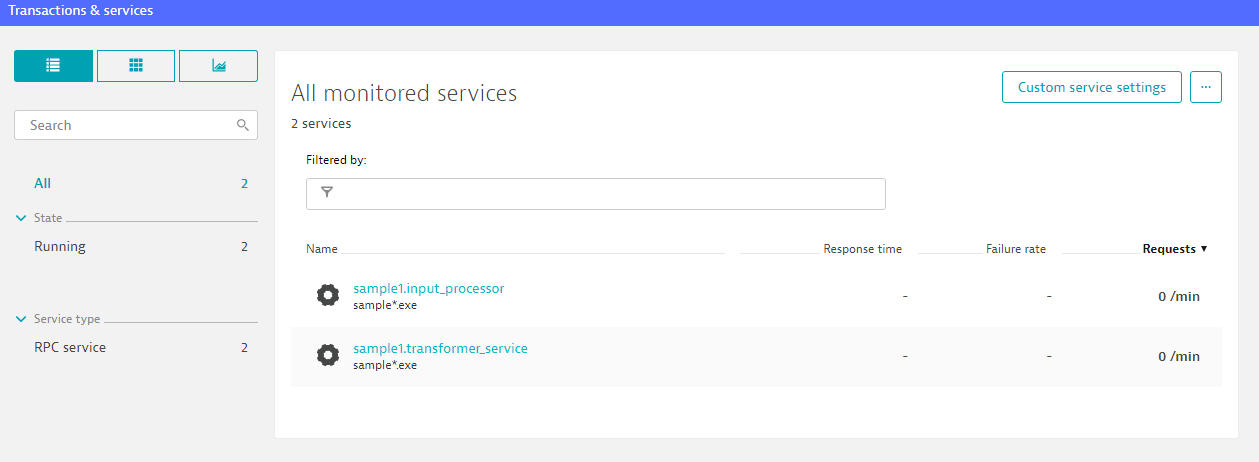
OneAgent is fully compatible with the OneAgent SDK. Remote calls that have been instrumented with the SDK are displayed as RPC service services, which function like any other service. All analysis and monitoring features, including auto-baselining and AI-based root cause analysis, are available.
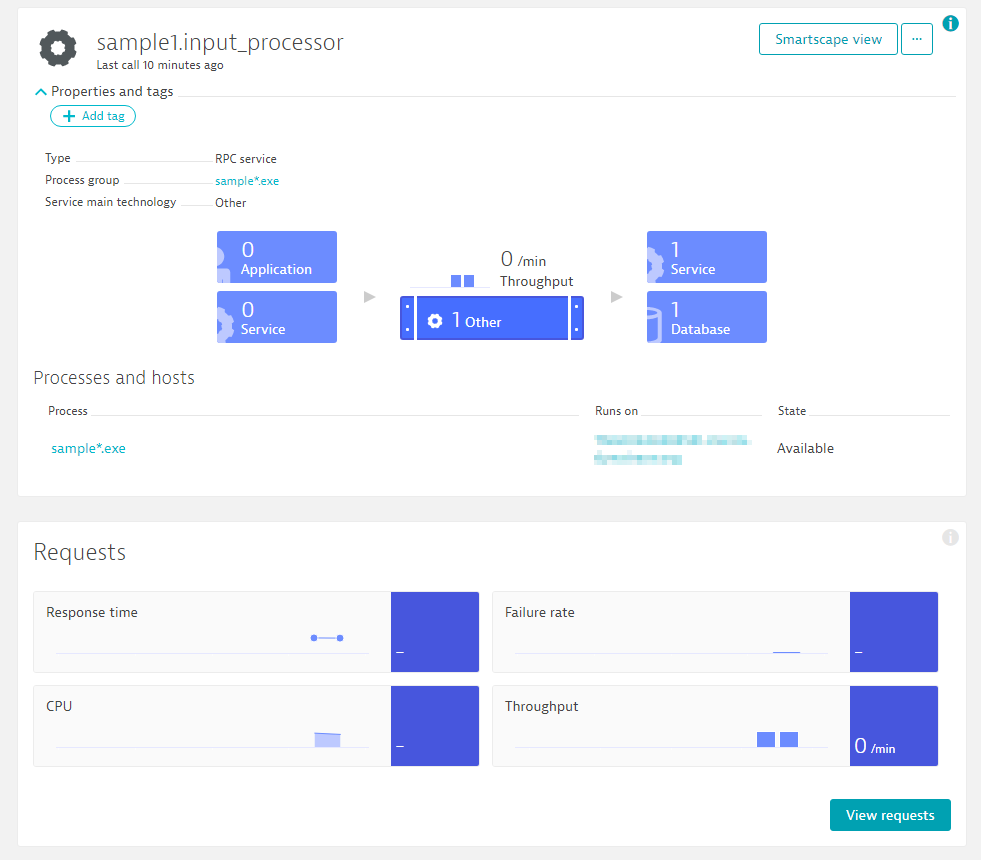
It’s worth noting that this service, as predicted, calls another service and a database. To get a sense of what’s going on, let’s look at the Service flow and Smartscape.
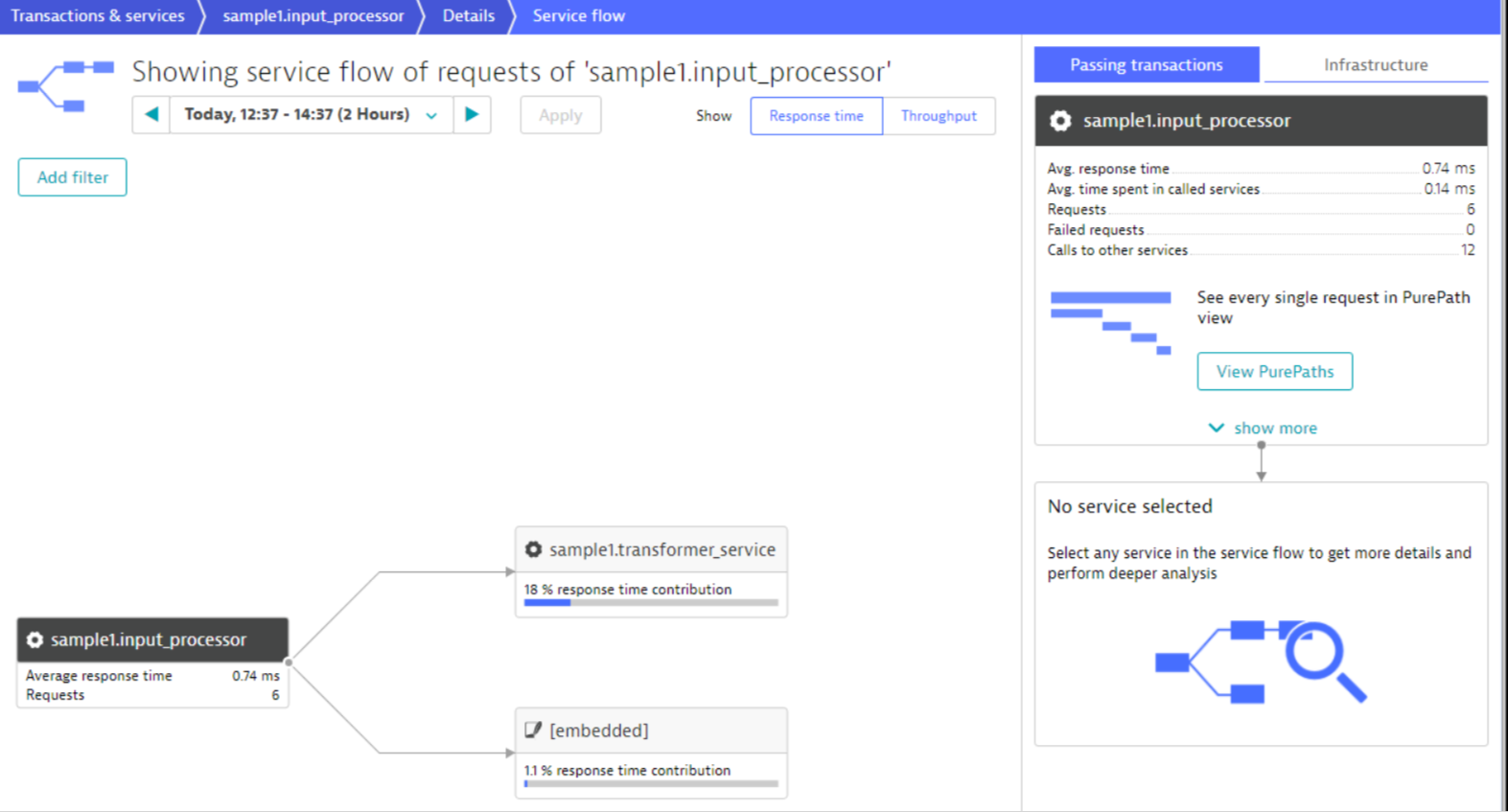
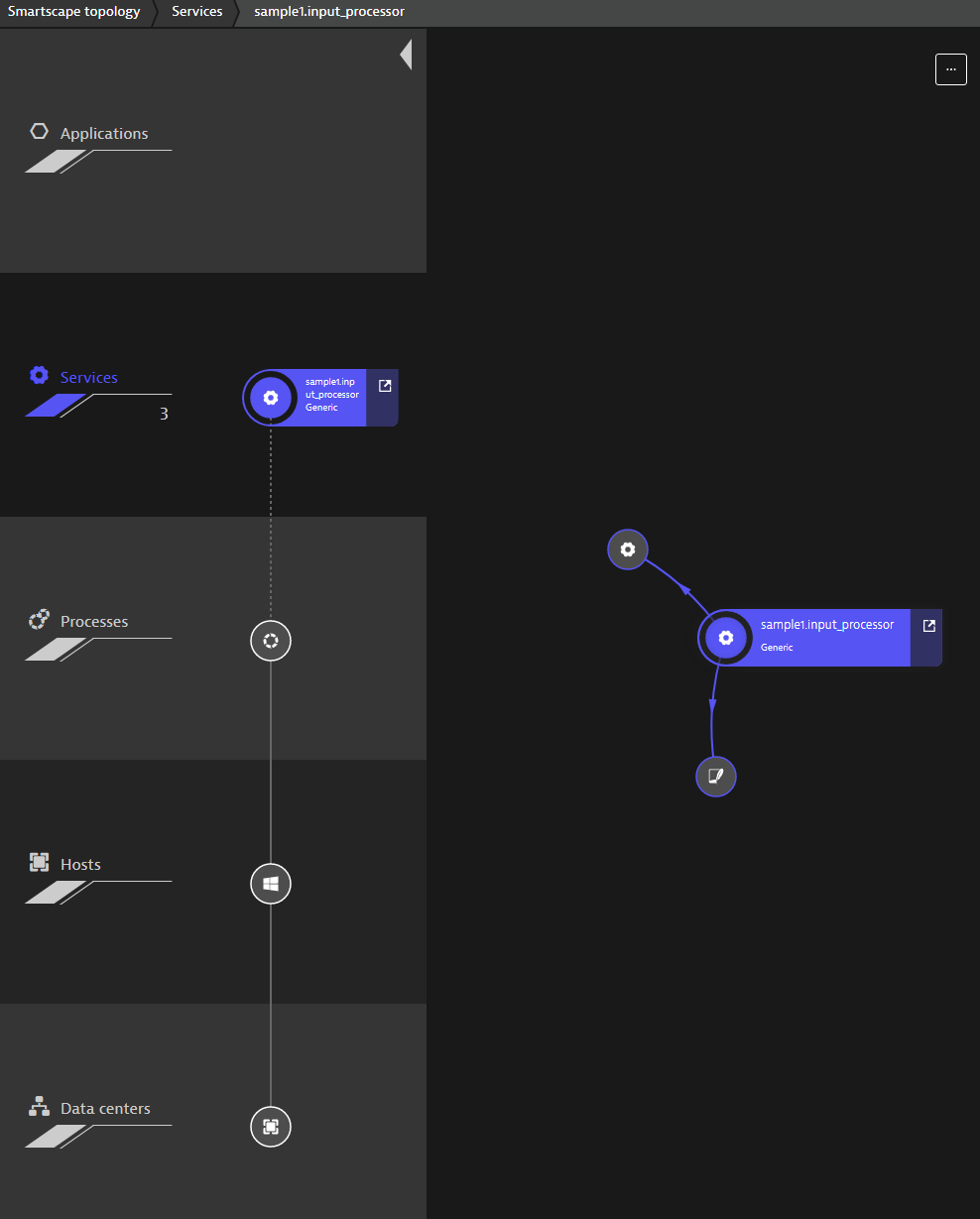
OneAgent captured six queries to the service sample1.input processor, as you can see. In the PurePaths view, we can examine the individual requests from here.
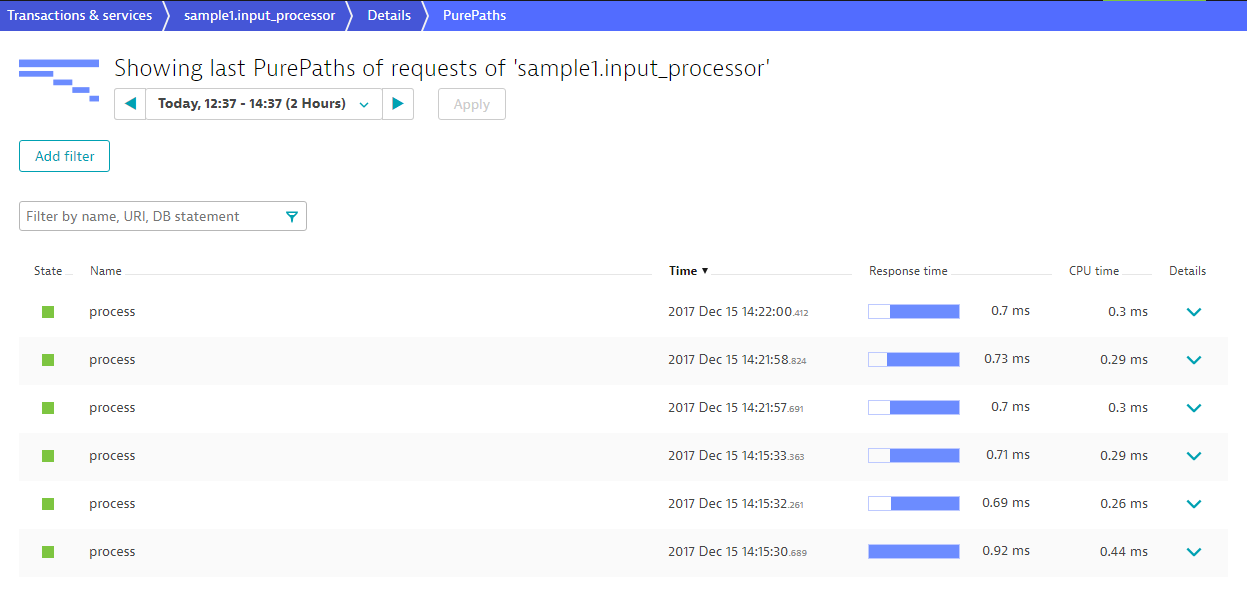
The process technique takes up most of the time. However, the transform remote method on another service is also used.
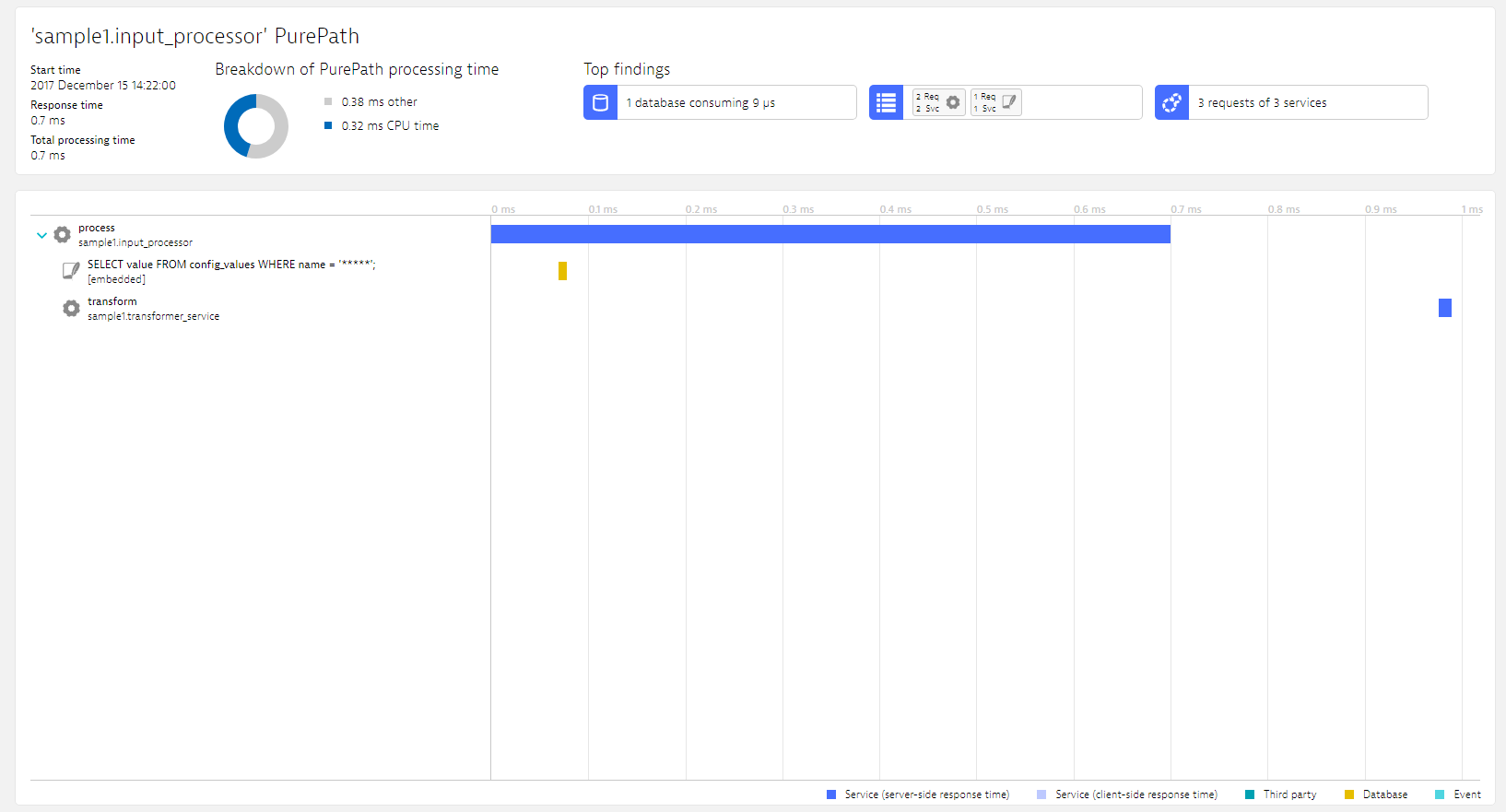
The schematic structure of the recorded PurePath and any relevant timings may be seen at the code level.
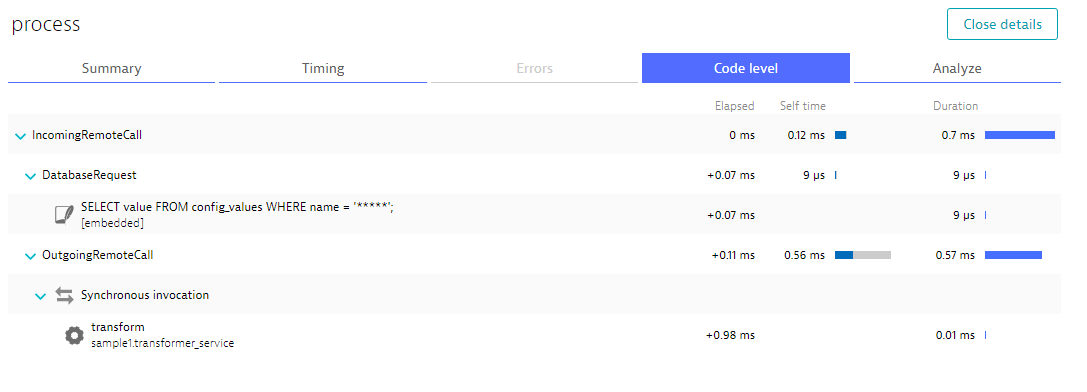
I logged in to some database calls. The newly discovered database service tracked using the SDK may be seen.
Extend AI-based root cause analysis
OneAgent SDK C/C++ delivers visibility into your C programs and throughout your whole application ecosystem. All detected services and databases are monitored at the same degree of granularity. All queries to the sample1 sample application and any SQL statements from the newly discovered database are baselined.
What about Python, Ruby, Perl, and Erlang?
Language bindings allow Python, Ruby, Perl, and Erlang to make calls to C. We don’t intend to create language bindings for all four languages, but we hope to have something for Python later this year.
We’d love to hear what you think of the OneAgent SDK for C/C++. The most straightforward approach is to use the issue tracker in our GitHub repository. You can also leave a remark on our AnswerHub roadmap topic.
About Enteros
Enteros offers a patented database performance management SaaS platform. It proactively identifies root causes of complex business-impacting database scalability and performance issues across a growing number of RDBMS, NoSQL, and machine learning database platforms.
The views expressed on this blog are those of the author and do not necessarily reflect the opinions of Enteros Inc. This blog may contain links to the content of third-party sites. By providing such links, Enteros Inc. does not adopt, guarantee, approve, or endorse the information, views, or products available on such sites.
Are you interested in writing for Enteros’ Blog? Please send us a pitch!
RELATED POSTS
Real Estate IT Economics with Financial Precision: Enteros’ Cost Attribution Intelligence
- 9 February 2026
- Database Performance Management
Introduction Real estate has always been an asset‑heavy, capital‑intensive industry. From commercial portfolios and residential developments to REITs and PropTech platforms, profitability depends on precise financial control. Yet while real estate organizations apply rigorous financial discipline to assets, leases, and investments, their IT and data environments often lack the same level of cost transparency. Modern … Continue reading “Real Estate IT Economics with Financial Precision: Enteros’ Cost Attribution Intelligence”
Managing Database Growth with Financial Precision: Enteros for Tech Leaders
Introduction For technology enterprises, databases are no longer just systems of record—they are engines of innovation. SaaS platforms, AI applications, digital marketplaces, analytics products, and customer-facing services all depend on rapidly growing databases that must scale continuously, remain highly performant, and stay available around the clock. But as database environments grow, so do costs. Cloud … Continue reading “Managing Database Growth with Financial Precision: Enteros for Tech Leaders”
From Performance to Profitability: Enteros Database Intelligence for Real Estate Enterprises
- 8 February 2026
- Database Performance Management
Introduction The real estate sector has undergone a dramatic transformation over the past decade. What was once an asset-heavy, relationship-driven industry is now deeply digital, data-intensive, and platform-centric. Property listing portals, smart building platforms, tenant experience apps, valuation engines, AI-driven pricing models, IoT-enabled facilities management systems, and digital transaction platforms all rely on complex, always-on … Continue reading “From Performance to Profitability: Enteros Database Intelligence for Real Estate Enterprises”
Running Retail on Data: How Enteros Transforms Database Performance Management
Introduction Retail has evolved far beyond physical stores and point-of-sale systems. Today’s retail enterprises operate complex, always-on digital ecosystems that span e-commerce platforms, mobile apps, omnichannel order management, supply chain systems, loyalty programs, personalization engines, and real-time analytics. Every product search, cart update, inventory check, price change, promotion, and payment depends on high-performing databases working … Continue reading “Running Retail on Data: How Enteros Transforms Database Performance Management”